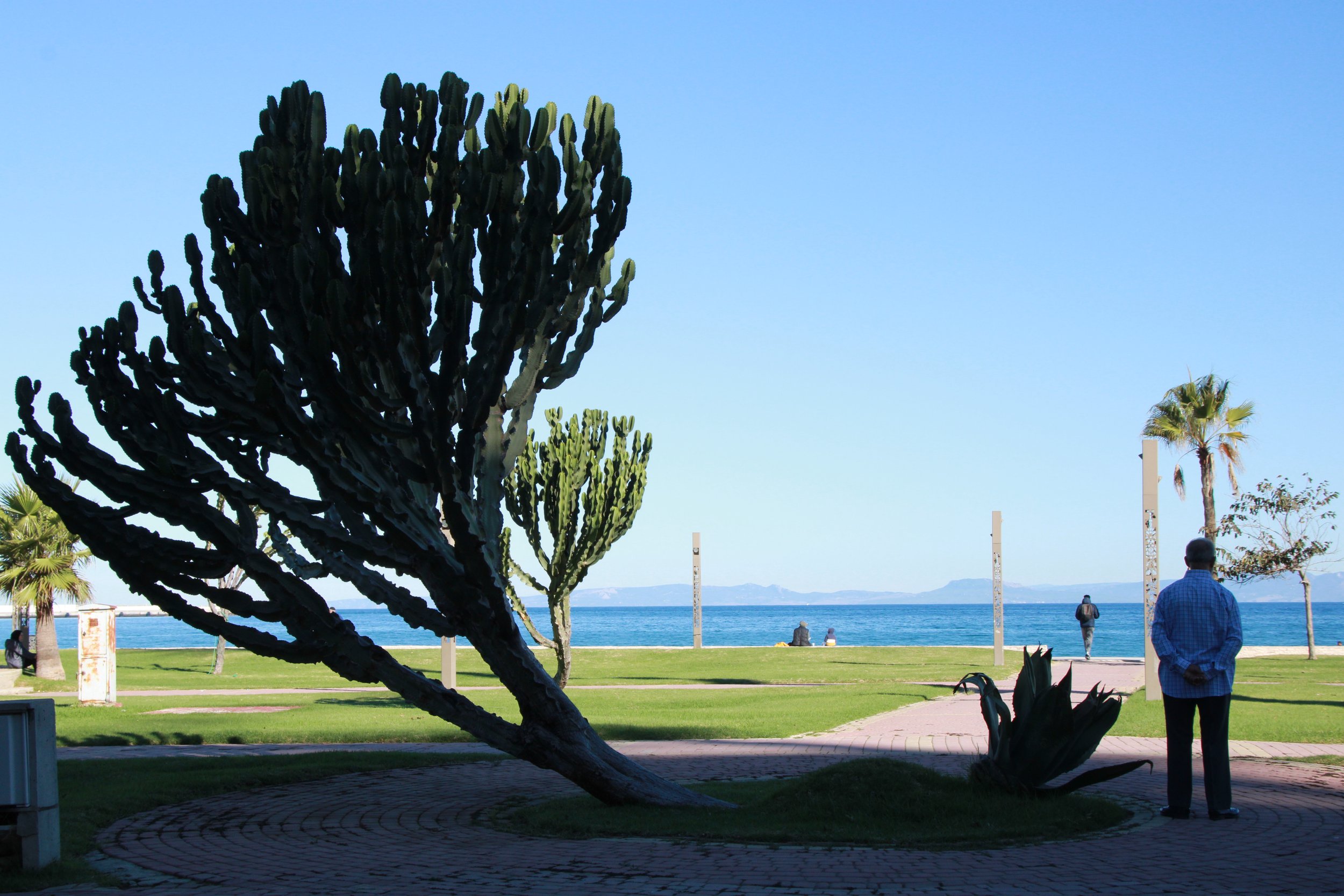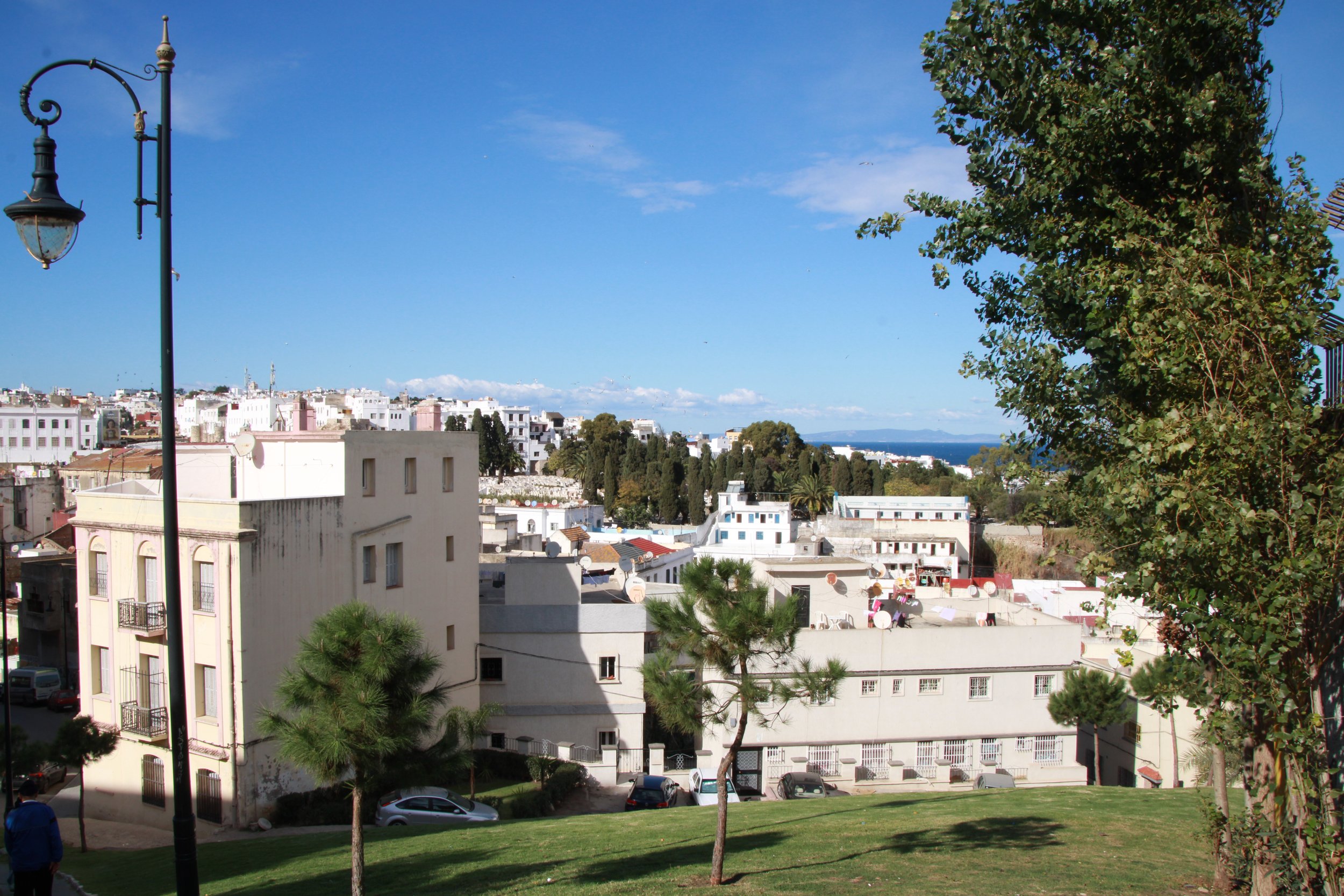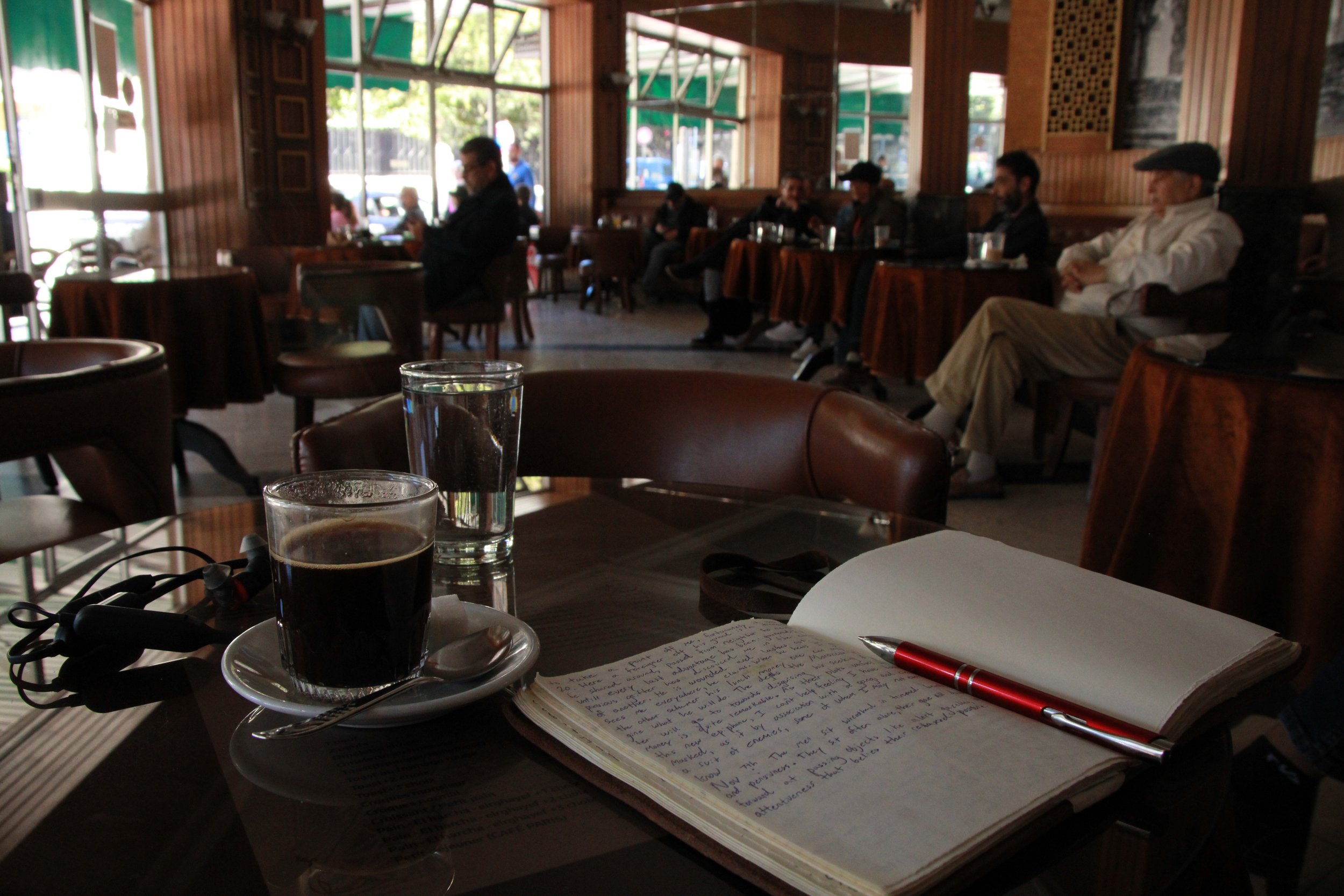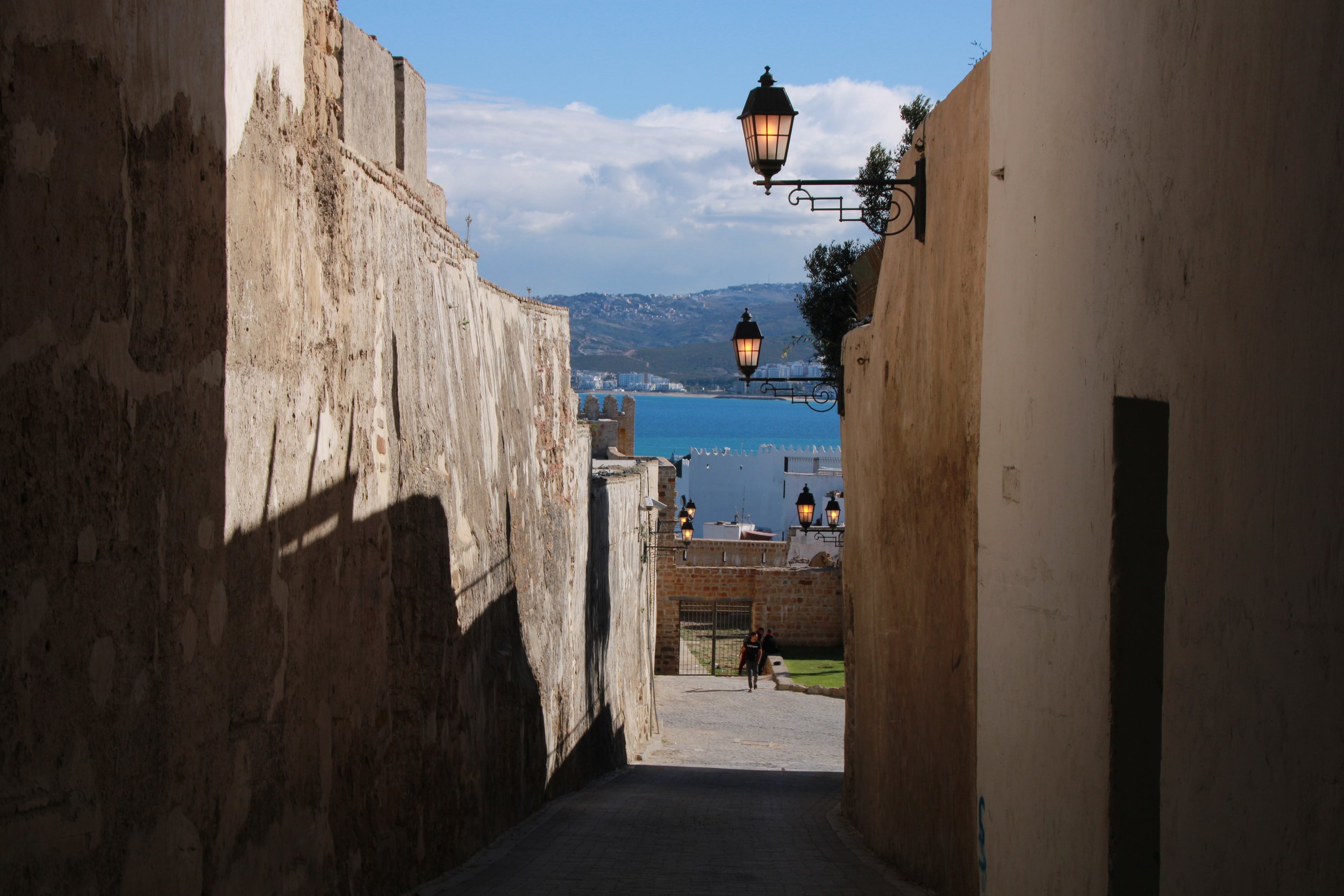The city of Paul Bowles; the city of Mohamed Choukri; and a city that has been used numerous times for big Hollywood productions, Tangier is one of those cities whose very walls seem to believe its own mythos.
From the train station to the Kasbah, the concrete to the voices in the streets, the city has thoroughly convinced itself of its internationality. If Mark Twain never traveled there, I’d be surprised.
Morocco is one of the gateways to Africa both literally and figuratively. As well as being one of the continent’s largest exporters, its share of African tourists is the largest.
Nowhere is that more obvious than in Tangier, where travelers and expats blend together, and where those living in the Rif Mountains bring goods down from the countryside to sell on national and international markets.
The north is not your typical desert-and-palm imaginations of Morocco, but then again Morocco has a varied landscape. The north is multi-faceted, reflecting both different cultures and different landscapes. It’s astonishing sometimes listening to the men in the medina cycle through a 5-country repertoire of European languages, those belonging to members of the nations welcomed and others which had to be skipped over, in order to try and communicate with you.
As Moroccan as couscous, but as complex as marriage, it is unsurprising that literature and film are drawn to the city.
On the face of things
Tangier has its own airport, but getting there essentially means stopping at Casablanca before. One can save themselves around $150-$200 simply by getting off at Casablanca and taking a two-hour train aboard Al-Boraq (the nation’s highspeed rail company) to Tangier.
The vibe is relaxed and modern, and there are great beaches which, compared to many other beach locations, go largely unused during most parts of the year. Shopping is at an airport level of modernity, and it’s the only place outside of Italy where this reporter has found his own favorite Milano tailor.
It is not an expensive place. Bigger cities like Fes, Marrakech, and Casablanca have more inflated prices, due to the hoovering up of tourists. It’s both possible to eat well and constantly take a taxi, without the need to visit the medina to buy a larger wallet.
Inside the medina, it’s possible to stay in Riads (hotels) for less than the cost of Europe, but such a place never dithers on hospitality, and one need never suffer even a picolitre of corporatism in one’s room, or one’s treatment.








